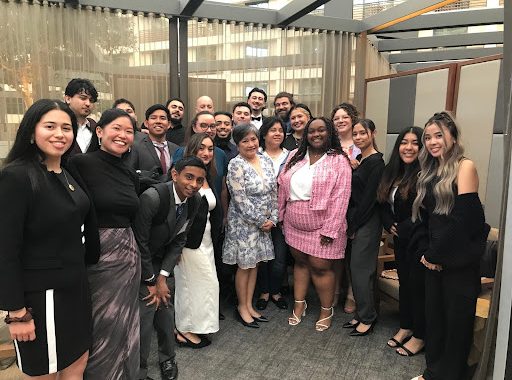A Question Of Power
Model United Nations is, at its core, about empowering young leaders—developing a deeper understanding of global politics, forming resolutions on shared challenges, and taking meaningful action through diplomacy. But just as delegates prepared to take their seats, a very literal obstacle emerged: a sudden power outage swept through the conference hotel, casting both the venue and the incoming delegations into uncertainty.
The blackout served as an unintentional metaphor for the challenges of international cooperation—especially in a world increasingly reliant on electricity and digital connectivity. These themes would later echo in the conference’s title: “Between Chaos and Consensus: Advancing the Sustainable Development Goals.”
Fortunately, the lights returned just in time. At 5:02 p.m., the 74th session of the Far West Model United Nations was officially called to order. Delegates from nearly every represented country were present for the adoption of the agenda and the opening plenary, with more than 350 students in attendance.
The Secretary General addressed the assembly first, reflecting on her experiences at MUNFW and welcoming both returning and first-time delegates. She encouraged students to take a moment to consider why they were here, and to reflect on the UN’s role in responding to pressing humanitarian challenges—particularly around sustainability and women’s rights. She emphasized the importance of involving impacted communities directly in the process of crafting solutions. Her message ended with a striking reminder: “The United Nations has never been more needed. Our values have never been more relevant. And the needs have never been greater.”
Keynote speaker Gustavo Aitaro, representing the Republic of Palau, followed with a similar message: a call to action. He praised the dedication and political curiosity of the youth present, and urged delegates to embrace their power to shape the future. Aitaro emphasized the importance of “global solidarity,” noting that even geographically distant conflicts—such as the war in Ukraine—have ripple effects worldwide, especially economically, such as through rising living costs.
Another key theme in Aitaro’s remarks was digital inclusion. He called for expanding access to digital tools and education, arguing that democratizing access to the digital world strengthens youth and communities alike. Achieving this vision, he said, will require both domestic and international collaboration. “The first seeds of global leadership,” he added, “can be planted at conferences like MUNFW.”
Following the keynote, five delegates took the stage to deliver regional bloc statements, each spotlighting urgent global issues and regional priorities.
Representing the African Group, Somalia emphasized the importance of achieving the Sustainable Development Goals (SDGs) as a means of combating poverty. The delegate called for regional cooperation without foreign interference and insisted that Somalia seeks not charity but justice—equal treatment and global respect.
India, speaking on behalf of the Asia-Pacific Group, urged delegates to act with urgency—not just in theory. The representative emphasized the need to prioritize human rights, economic security, climate action, and digital access, all within a framework of equity and long-term structural change. “Consensus is the presence of commitment,” she said, “not the absence of disagreement.”
Slovenia, representing the Eastern European Group, highlighted sustainability and global security, referencing the 2023 agenda and key priorities such as cybersecurity, marine wildlife conservation, and sustainable aquaculture.
The Dominican Republic, speaking for the Latin American and Caribbean Group, reaffirmed its commitment to the 2030 Agenda. With the deadline fast approaching, the delegate urged all countries to confront their realities and work toward shared goals while respecting economic and social differences. “Delay in action,” she said, “is a delay in humanity.”
Lastly, representing the Western European Group, Greece turned attention to press freedom and the persecution of journalists. The delegate linked these issues to violations of the UN Charter—particularly in the context of ongoing global conflicts—and called on all nations to uphold UN values both during the conference and beyond.
The Opening Plenary served as a powerful reminder of each delegate’s purpose at MUNFW. With committees now underway, the 74th session has officially begun—and the world, both literal and diplomatic, is back online.
Nele Nessler
Oman World Press Reporter
Heidelberg University


